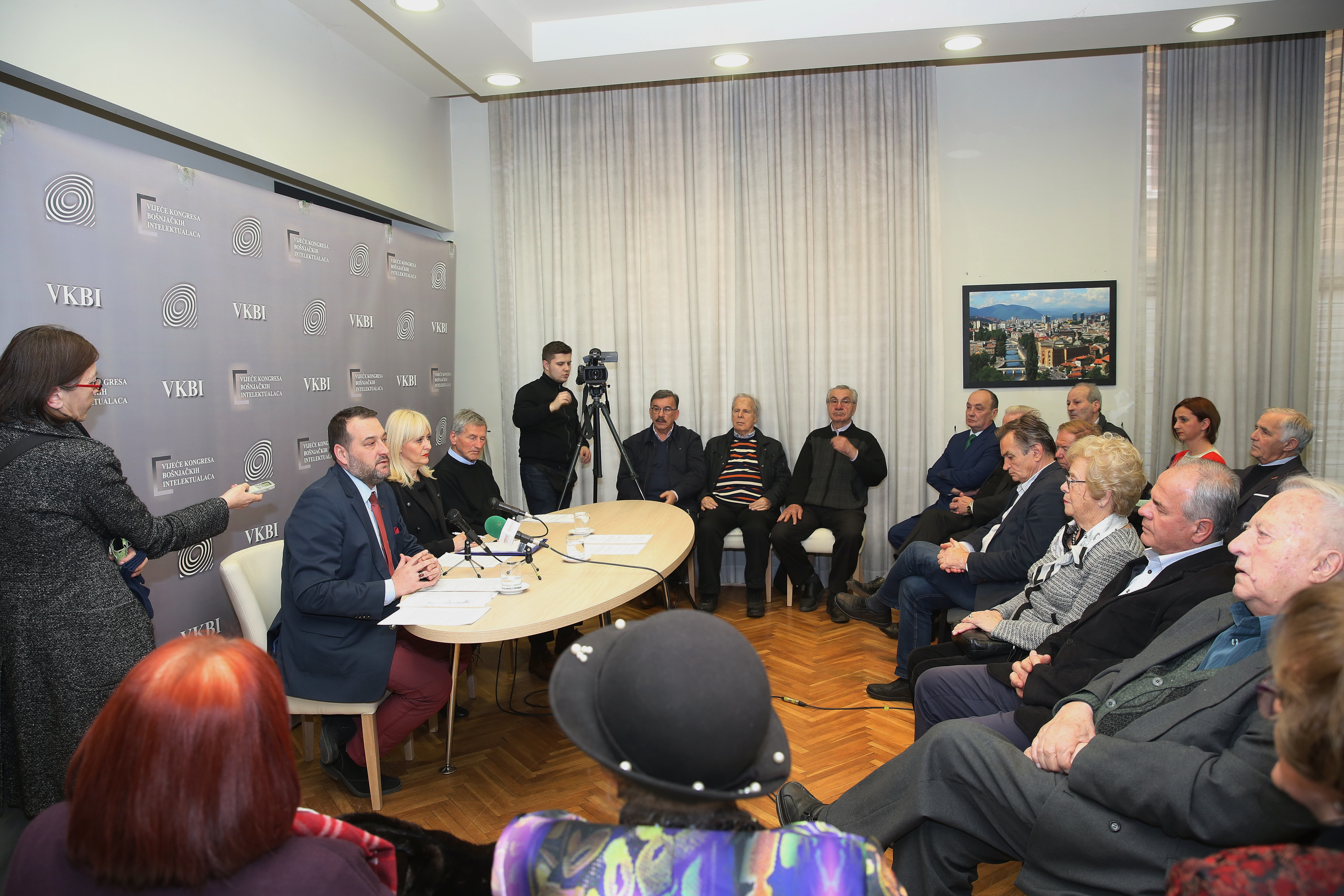
Bosniak intellectuals urged on Thursday officials and institutions to implement four European Court of Human Rights (ECHR) rulings, saying that doing so would solve the problems that have been plaguing Bosnia for more than a decade.
The 1995 Dayton Peace Agreement which ended the war obligates Bosnia to implement the European Convention on Human Rights and its protocols, which “are a priority” compared to any other laws, the Council of the Congress of Bosniak Intellectuals (VKBI) said.
The Council pointed out that Bosnia signed and ratified the Convention in 2002, and after the country “entered Europe’s system of collective protection of human rights and freedoms,” the European Court of Human Rights ruled on four cases: Sejdic and Finci against Bosnia (2009), Zornic against Bosnia (2014), Pilav against Bosnia (2016) and Slaka against Bosnia (2016).
None of those rulings have yet been implemented, which the intellectuals said seriously undermines the rule of law and the credibility of Bosnia’s institutions, especially the Constitutional Court, but also the credibility of the Strasbourg Court.
Final rulings by the Human Rights Court are forwarded to the Council of Europe Committee of Ministers which monitors how they are implemented.
The intellectuals said that the oversight “had no effect in practice” in Bosnia.
“The Parliamentary Assembly of the Council of Europe has also shown itself to be incapable to solve any problem,” the intellectuals said, adding that the Assembly “adopted tens of resolutions, among which was one that spoke of the establishment of a supreme court in Bosnia and Herzegovina,” but that none was implemented.
All four cases the intellectuals mentioned relate to principles of electoral law.
The implementation of those rulings is “primarily the responsibility of domestic politicians,” VKBI said.
“However, we are convinced by now, that the state of Bosnia and Herzegovina ‘is unable to meet its domestic and international obligations’,” VKBI said, citing a Venice Commission Opinion from 2005.
The Dayton Agreement also includes the institution of High Representative, Bosnia’s top international administrator, tasked with overseeing the implementation of the Agreement.
VKBI pointed out that, according to the Annexe 10 of the Agreement, the High Representative should facilitate “the resolution of any difficulties arising in connection with civilian implementation.”
The OHR thus has the “final word on everything that is of key importance” for the civilian implementation of the Agreement, the VKBI said.
“In conclusion, it must be noted that in all of this the state of Bosnia and Herzegovina has a primary role as a factor of unification, cohesion and efficient solving of all economic, political, democratic and other problems, and should be the motorised engine of technical, technological and scientific development,” the intellectuals said.
Bosnia needs to “transform so that, from today’s broken up, divided” state it is turned into a “modern democratic and lawful state, as are other European Union members.”
The VKBI said it will, together with other civil society organisations, call upon “all actors” named in the Dayton Agreement to “begin fulfilling their obligations.”
They said they will send requests to institutions and officials in the Council of Europe, the EU, the OHR, the Constitutional Court, the Presidency, the Council of Ministers and the Parliamentary Assembly, to “immediately and without postponement” implement all activities stated in the European Human Rights Court rulings.
“These activities must be a priority of the parliamentary assembly of Bosnia and Herzegovina,” they said, arguing that implementing them would solve the problems that have been plaguing Bosnia “for more than 10 years.”
It will also clarify “which political representatives don’t want the implementation of those rulings,” they said, adding that it will be then an argument that can be laid out to European institutions which want rule of law and European principles to be applied in Bosnia.
Kakvo je tvoje mišljenje o ovome?
Učestvuj u diskusiji ili pročitaj komentare





 Srbija
Srbija
 Hrvatska
Hrvatska
 Slovenija
Slovenija



























































